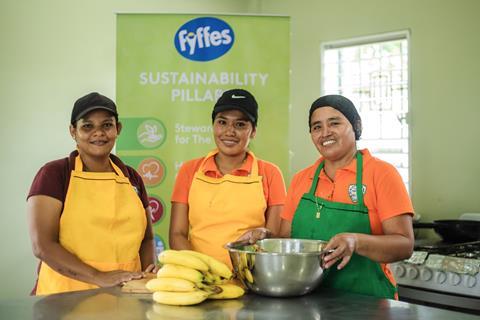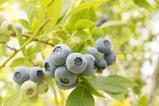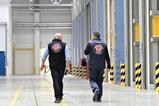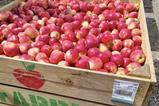Fruit brand exceeds multiple targets in latest biennial report, achieving goals in waste reduction, water management and packaging despite facing severe climate change impacts including tropical storms and increased pests
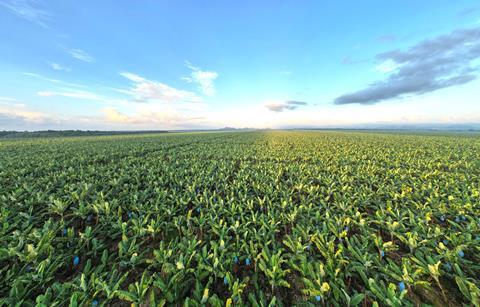
Fruit brand Fyffes says its growers face some of the “most severe” impacts of climate change – including more frequent tropical storms, increased rainfall and heat, and a rise in pests and fungal outbreaks.
And to combat those challenges, the group has invested in various schemes that might offer solutions.
In fact, according to the latest edition of its biennial sustainability report, Fyffes has made some impressive advances as it looks to achieve a number of sustainability development goals.
In the report, it revealed that all of its own operations are now covered by a certified water management plan; that 99.6 per cent of its packaging is recyclable, reusable, or compostable; and that it has met a target to repurpose 80 per cent of its post-harvest food waste.
The report, which covers the period 2023-24, highlights various efforts that the group and its producers have undertaken to meet certain environmental challenges.
In many cases, in fact, Fyffes said it had surpassed its sustainability targets.
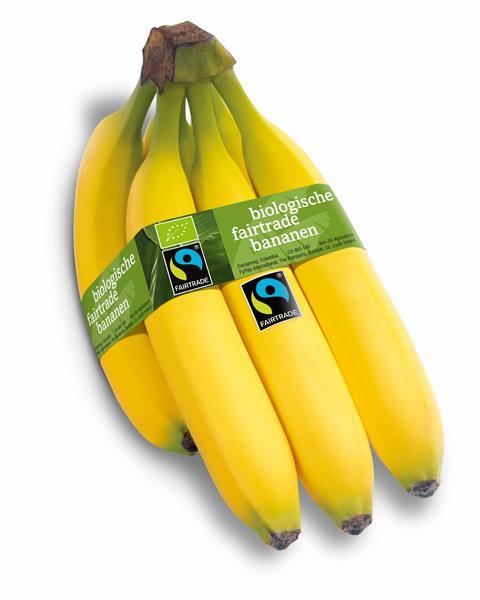
“At a time of significant global uncertainty and with climate change severely impacting growing conditions, I am extremely proud of what our team has achieved through innovative approaches and lateral thinking,” said Helge Sparsoe, Fyffes’ CEO.
“We are at the forefront of sustainability in our sector, always at the ready for our customers current and future sustainable and ethical supply chain requirements. Despite these challenges and the increasing regulatory differences in sustainability policy in consumer markets, we are steadfast in our commitment to shaping wellbeing for the world, both for people and planet.”
Pivotal year
In the report, Fyffes said it had also “well surpassed” its goal of donating 5mn healthy meals to vulnerable communities, reaching a total in excess of 27mn meals to date.
During the period covered, Fyffes apparently reduced its Scope 1 and 2 CO2 emissions by 12.05 per cent, driven by initiatives such as switching to lower-nitrogen fertilisers and modernising its agrochemicals application equipment.
The company said it remained determined to achieve an SBTi-endorsed target to reduce Scope 1 and 2 greenhouse gas emissions.
Elsewhere, Fyffes said it had trained 100 per cent of its employees on human rights and introduced human rights training for suppliers. It has also conducted independent human rights impact assessments at supplier sites in Costa Rica and at Fyffes-owned farms in Belize.
For Sparsoe, 2023-24 was “a pivotal year for Fyffes marking the halfway point in the UN Sustainable Development Goals, our 2030 Sustainability Strategy, and our corporate strategy.”
Fyffes has been shortlisted for a Reuters SDG Pioneer Award and a Sustainability Supply Chain Award at the UK Fresh Awards.
